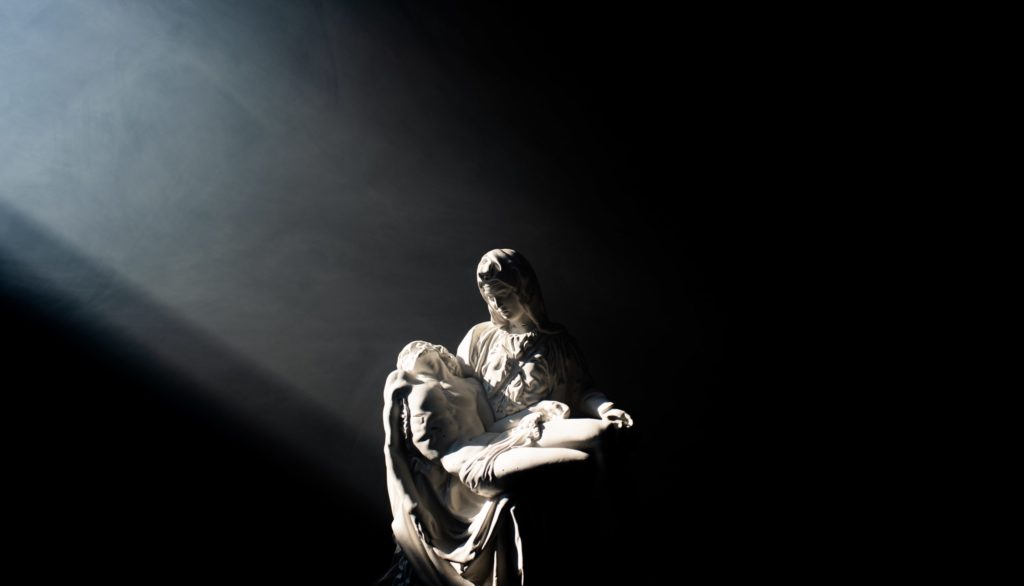The days of Holy Week are desired by all to make a break in the daily rhythm of life, something very necessary. But we Christians should not forget that these are holy days, not merely idle days. Days on which we commemorate the central mysteries of our faith. Days on which we become contemporaries of the Passion, Death and Resurrection of Jesus Christ. It is striking in this regard how many believers neglect the intense experience of the Easter Triduum, which is the center of the liturgical year.
Works of faith
It seems as if taking advantage of Holy Week consists of going to processions, which although they are a beautiful manifestation of popular devotion do not constitute the substance of what the Church offers for this time. Perhaps we tend to remain in a mere sentimentalism that does not translate into works of faith. Or to maintain a series of traditions that do not go beyond the walls of our home.
But many, out of laziness or ignorance, do not feel the need to go to church. And the days of Holy Week are days of church. Days to nourish oneself with the richness of divine grace that is poured out superabundantly in the liturgy.
The trades
"The trades? Ah, the offices. Those Masses that we have during Holy Week. But they are not of obligation: they are for very devout people". This reflection, which can be funny, is usually made by many Christians without blushing. Curiously, on Ash Wednesday we fill the churches and it is not a day of obligation either. And in that Mass, the beginning of Lent, we are exhorted to conversion.
A conversion that should translate into a desire to live Holy Week in depth. Some go from Palm Sunday - the Sunday of Jesus' entry into Jerusalem, mounted on a donkey, to consummate the salvation of the human race - to Resurrection Sunday - when Christ's victory over sin and death is actualized - without any solution of continuity. Two Sundays that some simply place at the beginning and end of the vacations. And, in the midst of all this, how much of God's grace they are missing.
The Easter liturgy
The Office of Holy Thursday commemorates the last supper of Jesus Christ with his apostles, in which he institutes the Eucharist and the priestly order and consecrates the new commandment of love with the washing of the feet. After the Mass, the Blessed Sacrament is transferred to the monument where it is reserved for adoration during that night and the following morning.
The Office of Good Friday, a day of fasting and abstinence, begins with the prostration of the priest before the altar. On this day the Eucharist is not celebrated: Christ crucified is the center of the liturgy. The Liturgy of the Word is centered on the Passion and Death of the Lord. After an extensive and profound universal prayer, the cross is adored and at the end Holy Communion is distributed. The entire liturgical action of this day is imbued with a silence that leads to contemplation. After this office, the altar is left bare with the cross on it.
Holy Saturday is a day in which the Church remains in prayer at the tomb of Christ, with that contemplative attitude of his Passion and Death. It is the only day of the year when Mass is not celebrated. Around midnight -although this year due to the restrictions of the pandemic it will be necessary to advance the schedules- the Easter Vigil takes place, which is perhaps the most beautiful Eucharist of the whole year.
It is surprising that the Mass with the greatest liturgical richness of the year - the entrance of the candle and the passage from darkness to light, a long and profound proclamation, seven readings and seven psalms, the celebration of Baptism and the renewal of baptismal promises - is so unknown even among many Christians. In this Mass, the Church awaits the Resurrection of Jesus from the tomb with lighted lamps: the temple is in darkness until the light of Christ, with the Paschal Candle, illuminates each of the faithful.
Harmonizing liturgy and piety
The Directory on Popular Piety and the Liturgy refers to the need to harmonize the liturgical celebrations and the exercises of piety, without them being parallel experiences. Both processions and Christian practices in the family are a wonderful way to experience Holy Week. But if they are separated from what happens in the temples - where the redemptive work of Christ is actualized in the souls of the faithful - they lose all meaning. The days of Holy Week are days of the Church and we Christians should not forget this.













